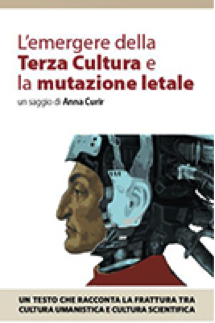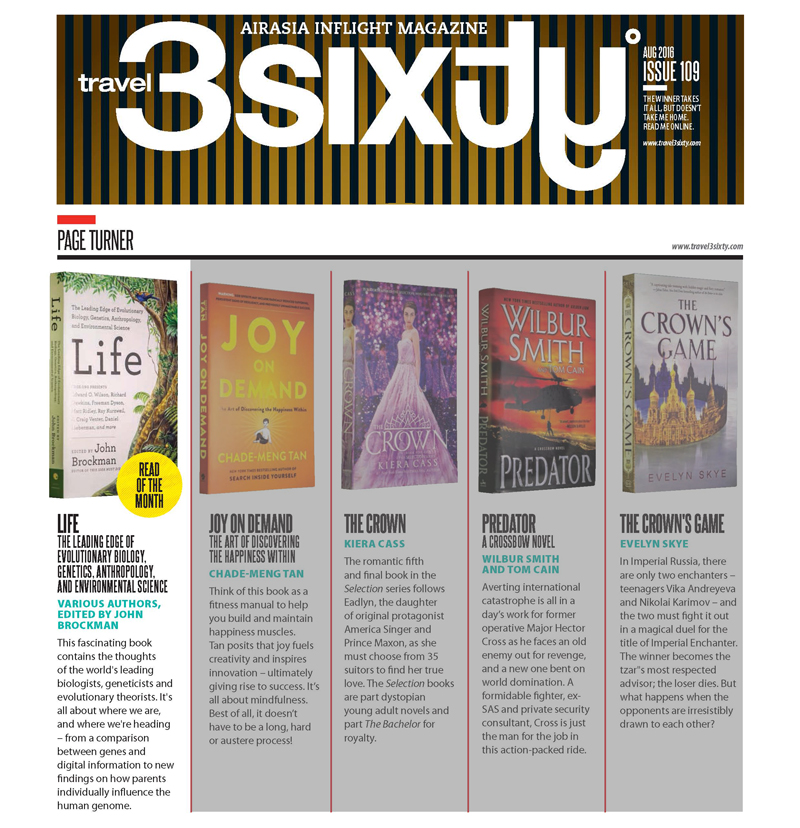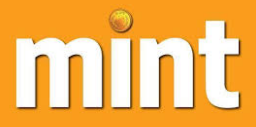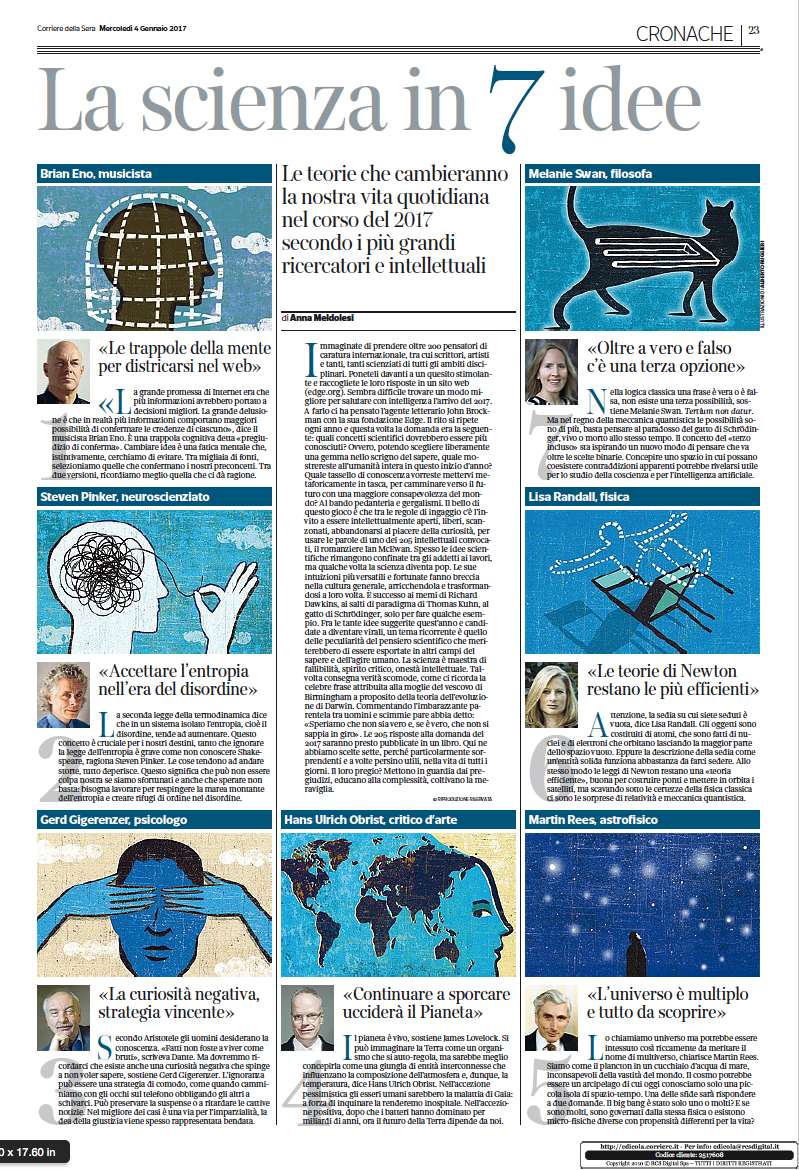Edge in the News

We generally consider knowledge to be a desirable commodity. But there are situations where people voluntarily forgo information - and those in which ignorance is even practical.

Theories that will change our everyday life in the year just begun according to 206 great researchers and intellectuals from around the world
Imagine taking over 200 international thinkers, including writers, artists and many, many scientists of all disciplines. Place them in front of a challenging question and collect their responses on a web site. It seems difficult to find a better way to greet with understanding the arrival of 2017. To do so we thought the literary agent John Brockman with his Edge Foundation. The ritual is repeated every year and this time the question was the following: “What scientific term or concept ought to be more widely known?” That is, being able to choose freely a bud in the casket of knowledge, which you would show humanity at the beginning of this year. What piece of knowledge do you want to put metaphorically in your pocket, to walk toward the future with a greater awareness of the world? And do it with without pedantry and jargon. According to the novelist Ian McEwan, one of the 206 intellectuals invited to participate, the beauty of this game is that among the rules of engagement there is the invitation to be open-minded, free ranging, intellectually playful, to indulge in the unadorned pleasure in curiosity.
Scientific ideas often remain confined among insiders, but sometimes science goes mainstream, and the most versatile and fortunate intuitions breach into the general culture, enriching it, and changing it in turn.
This happened to the memes of Richard Dawkins, to the paradigm jumps of Thomas Kuhn, to Schrödinger’s Cat, just to name some examples. Among the many ideas suggested this year, and candidates to become viral, a recurring theme is that of the peculiarities of scientific thought that would deserve to be exported to other fields of human knowledge and action is that science is a master of failure, critical spirit, intellectual honesty. Sometimes it delivers uncomfortable truths, as it reminds us of the famous phrase attributed to the wife of the Bishop of Birmingham on Darwin’s theory of evolution. Commenting on the embarrassing kinship between men and monkeys she apparently said: "Hopefully it is not true and, if it is true, that you do not know around".
The 206 responses to the 2017 question will eventually be published in a book. Here we have seven contributions, selected because they are particularly surprising and sometimes even useful in everyday life. Their merit? They warn of prejudices, educate complexity, cultivate wonder.
Confirmation Bias (Brian Eno), The Second Law of Thermodynamics (Steven Pinker), Deliberate Ignorance (Gerd Gigerenzer), Included Middle (Melanie Swan), Effective Theory (Lisa Randall), Multiverse (Martin Rees)

What scientific term or concept should be more widely known in the year ahead? Six answers from leading thinkers.
The Second Law of Thermodynamics (Steven Pinker), Life History (Alison Gopnik), Positive Illusions (Helen Fisher), Common Sense (Jared Diamond), The Law of Small Numbers (Adam Alter), Complementarity (Frank Wilczek), The Copernican Principle (Mario Livio), Effective Theory (Lisa Randall)
On the occasion of presenting two facilities in the Kirchner Cultural Center, the legendary musician and producer Brian Eno went through Buenos Aires, in what was his first visit to Argentina. ... In 2012 he published one of 125 essays in the book What is going to change everything?, edited by John Brockman, editor of ... edge.com. Most of the responses, written by authors such as Ian McEwan, Nassim Taleb, Steven Pinker or Ricahrd Dawkins, coming down the side of the artificial intelligence, synthetic biology, physics or astronomy.
Eno, which in the past produced albums by U2, Talking Heads and Coldplay, among others, was on the other side. His answer to What is going to change everything? It was "the feeling that things will get worse." "What will change everything is not a thought but a feeling" ...
For Eno, "the development of mankind so far was driven by the idea that things, with high probability, will be better in the future. The world was rich in relation to its population, there were new lands to conquer, new thoughts to discover and exploit new resources. the great migrations of history was implemented from the projection that there was a better place. But what if this feeling changes?"

"With Big Data we can now begin to actually look at the details of social interaction and how those play out, and are no longer limited to averages like market indices or election results. This is an astounding change."- Professor Sandy Pentland - leading specialist in data science at Massachusetts Institute of Technology, USA - above Edge.org.
Pentland had ambitions to reinvent human society on a large database platform. He believes that with scientific data, one can understand the operating system to generate human society of the future system stable and safe. Thus, the financial system is not disturbed, paralyzed government and the health system will actually work effectively.
"The ability to see the details of the market, of political revolutions, and to be able to predict and control them is definitely a case of Promethean fire—it could be used for good or for ill, and so Big data brings us to interesting times. We're going to end up reinventing what it means to have a human society." - Professor Sand Pentland said.

HOW A BANKER-TURNED-LITERARY AGENT GOT HIS START IN THE UNDERGROUND ART SCENE
Best known as a literary agent, Brockman’s career has spanned art, science, film, theater, and digital media. For more than 50 years, he has served as a steady intermediary between disciplines, working with everyone from Stewart Brand, creator of The Whole Earth Catalog, to curator Hans Ulrich Obrist. He specializes in science literature and represents a roster of authors—including Jared Diamond and Steven Pinker—who are more widely known than he is. But Brockman’s preference has always been for the perimeter. He founded edge.org, a foundation with the mission of connecting people “working at the edge” of a wide range of disciplines. In his own writing, he advocates for a “third culture,” a synthesis of science and the humanities, with no smaller a goal than “rendering visible the deeper meanings of our lives and redefining who we are.”

I imagine the reluctance to publish Q&A interviews is one reason that we British readers find so few serious interviews with scientists in our newspapers—compared, say, to interviews with novelists or with retired politicians.
It need not be thus. John Brockman’s Edge publishes (almost) exclusively long verbatim conversations between scientists about science, and every one of them is riveting. Oscar Wilde said something to the effect that he never needed to go out in the evening when he could find such wit and wisdom in the books he had at home, and I feel something similar when I read interviews on Edge. Indeed, it may be as well that Edge limits itself to publishing one main interview per month, since if there were many more of them I would have time for nothing else.
Oscar Wilde said something to the effect that he never needed to go out in the evening when he could find such wit and wisdom in the books he had at home. I feel something similar when I read interviews on Edge.

THE NEW BOOK OF ANNA CURIR
The Emergence of the Third Culture and Lethal Mutation

In Italy there are two cultures, humanities and science: from the union of these two seemingly opposing visions of the world depends on the survival of our own society. Young researchers and scientists can make a difference.
…The emotion unites science and art, humanistic and scientific culture. Are the same poets, playwrights, directors, astronomers, scientists, explorers, architects, artisans and to become excited during the creative process, investigation, discovery, accompanying their work.
In short, the excitement can mend the breach between science and humanism that, at least in Italy, it seems not be solved by Benedetto Croce times. There is a third path to take, or we are faced with a dead end?
To reflect on the contrast between scientific and humanistic culture is Anna Curir, associated INAF Astrophysical Observatory of Turin, just in the bookstore with The Emergence of the Third Culture and Lethal Mutation, published by the Sirente.

This fascinating book contains the thoughts of the world's leading biologists, geneticists and evolutionary theorists. It's all about where we are, and where we're heading—from a comparison between genes and digital information to new findings on how parents individually influence the human genome.

The world of innovation, entrepreneurial and technological singularity is full of parallels with religion: there are prophets, pilgrimage centers (Silicon Valley, Tel Aviv, Seoul, Shenzhen), tribes of believers, heretics and revealed truths. The commonalities could become a simple curiosity, a thesis topic of a humanistic career, if not because there is a group of technologists and experts on this agenda who believe this cogency of religious values acts as a bias that could lead to wrong projections. And the forecasts of vehicles without human drivers, lives of hundreds of years, end of employment, to travel by virtual reality and other phenomena that are as inexorable from the field of innovation could be saying more about our present, with its molded psychological and cultural patterns in thousands of years, about the future. . . .
In the movie 2001 Space Odyssey, filmed in 1969, Stanley Kubrick imagines a future of space travel, but all women of history are hostesses, assistants or secretaries: the director did not foresee the gender revolution of the 70s. Steven Pinker talks about this in his essay in the book This Will Change Everything, published by the director of the website Edge, John Brockman.
This approach leads to the conclusion that the existence of certain technology is a necessary and sufficient condition for a large-scale social change associated with that progress in a short time. . . .
Speculation comes to mind of a reigning "social mood" in recent days, with a local reality in gray tone that combined corruption scandals, economic recession and defeat in the Copa America, and that in turn matches no less daunting international context, between Brexit, the prospect of Donald Trump winning the election in the United States, terrorist attacks and turbulence in the markets. These were the dominant themes in the media and on social networks in recent days. ...
Six years ago, John Brockman, editor of Edge.org, published a book with 125 short essays written by several of the most influential thinkers in the world, who attempted to answer the question: "What is going to change everything?" The texts were authors like Richard Dawkins, Ian McEwan, Nassim Taleb, Steven Pinker, Freeman Dyson and Jared Diamond, among others.
Most responses came from the field of artificial intelligence, synthetic biology, physics and astronomy (the most repeated response will change what all was the discovery of intelligence beyond Earth).

This month’s Insights column was an attempt to use simple puzzles to highlight the consequences of the infinity assumption in the physical world. The idea was sparked by an article by the physicist Max Tegmark that was written for the book, "This Idea Must Die." Tegmark’s article is excerpted in a blog at Discover magazine under the title, "Infinity Is a Beautiful Concept — and It’s Ruining Physics."

In the past week I seized the opportunity to meet two foreign role models who visited the country.
One is the theoretical physicist Lisa Randall. The other is the artist Brian Eno.
Lisa Randall...spoke to Science & Cocktails in Christiania, which I blogged about here. And she is the person who to me has opened the magic of the laws of physics (and our limited senses to understand it) with books like 'Knocking on Heaven's Door' and her totally humble nature.
Then there's Brian Eno.
...[H]is cooperation with Stewart Brand and The Long Now Foundation and involvement in the anthology This Will Make You Smarter (published by Edge and which each year asks experts in their field an ambitious questions - and to the anthology this year was: "WHAT IS THE MOST INTERESTING RECENT SCIENTIFIC NEWS?"), I found out that Eno is actually deeply ambitious about the world's development while he is a great artist.


John Brockman is a colourful character, known to share photos of himself rubbing shoulders with the likes of Andy Warhol, Bob Dylan, or John Cage. That popular culture should include intelligent conversations about science is a given for him.

Edge.org, sometimes dubbed “the world’s smartest website”, was born out of an idea from Brockman’s late friend, performance artist James Lee Byars, who suggested that rather than trying to assimilate the information contained in the six million books housed in the Harvard library it might be more productive and instructive to assemble the hundred most brilliant minds and have them ask each other questions in order to achieve what Brockman has referred to as “a synthesis of all thought”.
Life is the fifth volume in The Best Of Edge series, and as with previous books, most of the featured content has already appeared on the Edge.org website....
...[T]here is an advantage to reading the essays featured in Life as opposed to gleaning information from random articles on the Internet.
On the net knowledge is dispersed, whereas this book has a structured sense of narrative, showing how research from different disciplines, and their disciples, can bolster and inform each other.
Ultimately, the sum of the whole is greater than the sum of the parts, perhaps an apt and fitting off-the-cuff metaphor for the subject matter – life.

...[I]f you’ve been paying attention to the news for the past several years, you’ve almost certainly seen articles from a wide range of news outlets about the looming danger of artificial general intelligence, or “AGI.”
Steven Pinker...for the website Edge.org:
The other problem with AGI dystopias is that they project a parochial alpha-male psychology onto the concept of intelligence. Even if we did have superhumanly intelligent robots, why would they want to depose their masters, massacre bystanders, or take over the world? Intelligence is the ability to deploy novel means to attain a goal, but the goals are extraneous to the intelligence itself: being smart is not the same as wanting something. ...

[Mary Lou Jepsen's] vision is broad and sweeping: it runs from a new generation of extremely high-resolution, affordable MRI machines for early detection of cancer, heart disease, and more, to a far-out time (or maybe not so far-out) when machines can read people’s minds and people can communicate—with each other and maybe even with animals—via thoughts.
The idea “leverages the tools of our times,” Jepsen says, citing advances in everything from physics to optoelectronics to consumer electronics to big data and A.I. that can be combined to shrink the size, improve the functionality, and lower the cost of MRI. “I could no longer wait. I’m still writing up the patents. But I am incredibly excited to strike off on this direction,” she says.
The startup, whose name has not previously been released as far as I can tell, is called Open Water (it could also be OpenWater, “not sure yet…either is OK for now,” she says). “Peter Gabriel gave me the name. He is a great advisor,” Jepsen says. In particular, she was inspired by this article he wrote for Edge.org, called Open Water–The Internet of Visible Thought, in which he credited Jepsen for introducing him “to the potential of brain reading devices.”
Mathematician/economist Eric R Weinstein is managing director of Thiel Capital, but that doesn't mean that he thinks capitalism has a future.
In a short, but wide-ranging essay in Edge's Annual Question series (this year's question is "What do you consider the most interesting recent [scientific] news? What makes it important?"), Weinstein talks about the fundamentally transformative nature of software-based societies and the challenges they put to the nature of work and economics. ...

Like many people nowadays, I do not talk on my iPhone as much as talk to it. That’s because it runs a program called Siri (Speech Interpretation and Recognition Interface) that works as an intelligent personal assistant and knowledge navigator. It’s useful, in a way. If I ask it for “weather in London today”, it’ll present an hour-by-hour weather forecast. Tell it to “phone home” and it’ll make a decent effort to find the relevant number. Ask it to “text James” and it will come back with: “What do you want to say to James?” Not exactly Socratic dialogue, but it has its uses.
Ask Siri: “What’s the meaning of life?”, however, and it loses its nerve. “Life,” it replies, “is a principle or force that is considered to underlie the distinctive quality of animate beings. I guess that includes me.” Ten points for that last sentence. But the question: “What should I do with my life?” really stumps it. “Interesting question” is all it can do, which suggests that we haven’t really moved much beyond Joseph Weizenbaum’s famous Eliza program, which was created in the MIT Artificial Intelligence Laboratory between 1964 and 1966. . . .
. . . [O]ften what really matters to us humans is stuff that we have difficulty articulating.
What’s brought this to mind is an extraordinary interview with Stephen Wolfram that’s just appeared on John Brockman’s Edge.org site. The term “genius” is often overused, but I think it’s merited in Wolfram’s case. Those of us who bear the scars from school and university years spent wrestling with advanced maths are forever in his debt, because he invented Mathematica, a computer program that takes much of the pain out of solving equations, graphing complex functions and other arcane tasks. But he’s also worked in computer science and mathematical physics and is the founder of the WolframAlpha “computational knowledge engine”, which is one of the wonders of the online world. . . .

In the 1960s he was a performance artist, he is now a literary agent in New York, his specialty: bringing ideas of renowned scientists to the people. John Brockman...put out a new book, and writes the question..."What scientific idea is ready for retirement?"
"Only a few really new ideas are developed, without giving up first older. In other words, science progresses through a series of funerals ahead. [But] why wait so long? What established scientific idea is mature enough to be pushed aside, so science can move forward?" ...
[E]nlightening and very entertaining.






